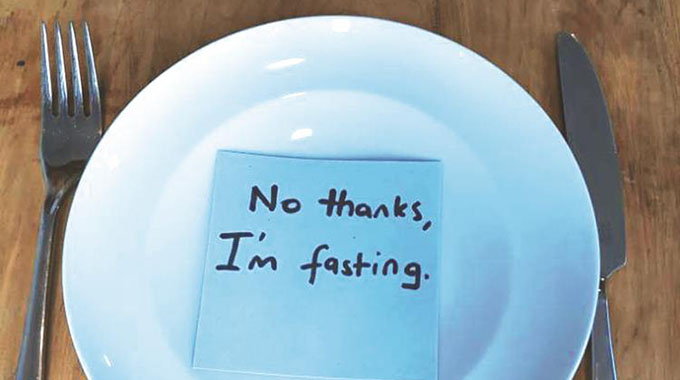
The ManicaPost

Pastor Lee Fore,Kingdom Matte
The month of January is regarded as the most spiritual month in the history of Christian believers across the globe.

Not only does fasting and prayer help us focus on God, but through that time, it brings us closer to Him and changes our hearts. People may choose to fast for a number of reasons
The most fascinating thing about this month is that most Christians regard January as the first month of the year which doesn’t resonate with history.
Most churches, both mainline movement and the charismatic — Pentecostal churches — have come up with different names of fasting in January, and some have adopted the movement and it has become a religious practice, and to a greater extent it has lost its significance and power. According to history (Encyclopaedia Britannica), in many countries the New Year begins on January 1. However, this wasn’t always the case.
According to history (Encyclopaedia Britannica), in many countries the New Year begins on January 1. However, this wasn’t always the case.
In fact, for centuries, other dates marked the start of the calendar, including March 25 and December 25.
So how did January 1 become New Year’s Day? We can partly thank the Roman king Numa Pompilius. According to tradition, during his reign (circa 715–673 BCE) Numa revised the Roman republican calendar so that January was the first month.
What does the Bible teach us about fasting? Fasting is abstinence from food or drink or both for health, religious or ethical purposes. Fasting has been promoted and practised from antiquity worldwide by physicians, by the founders and followers of many religions, by culturally designated individuals (e.g. hunters or candidates for initiation rites), and by individuals or groups as an expression of protest against what they believe are violations of social, ethical, or political principles.
In the religions of ancient peoples and civilisations, fasting was a practice to prepare persons, especially priests and priestesses, to approach the deities. Fasting is something that can and should be done fairly regularly.
However, Jesus didn’t say IF you fast … but WHEN you fast. It’s a great spiritual discipline.
The Bible is filled with so many verses about people who fasted, why they did it and what happened afterwards.
Although the Bible doesn’t give a direct command on this issue, examples of fasting appear in both the Old and the New Testaments.
One of the most telling passages in which fasting is mentioned is Matthew 6:16, where Jesus is teaching His disciples basic principles of godly living. Jesus’ words imply that fasting will be a regular practice in His followers’ lives.
In Acts, we see believers fasting before they made important decisions (Acts 13:2; 14:23).The following verses also highlight why we should want to fast;
John 4:34 says: “Father, as my body craves food, I crave Your presence. My food is to do Your will.” Job 23:12 adds: “I have treasured the words of your mouth more than my daily bread.” The Psalmist writes: “Like the deer that pants after water, my soul longs for you.” These three scriptures show us that fasting reignites our desire for God. Turning from our physical food increases our sensitivity to God’s voice and leaves us with a level of satisfaction that can only come from Him.
This is why Christ said: “I have food to eat that you know nothing about . . . My food is to do the will of Him who sent me and to finish His work.”
- Fasting and prayer can help us hear from God.
- Fasting and prayer can reveal our hidden sin.
- Fasting and prayer can strengthen intimacy with God.
- Fasting and prayer can teach us to pray with right motives.
- Fasting and prayer can build our faith.
Not only does fasting and prayer help us focus on God, but through that time, it brings us closer to Him and changes our hearts. People may choose to fast for a number of reasons, e.g.
- To prepare for ministry
- To seek God’s wisdom.
- To show grief.
4.To seek deliverance or protection
- To repent
- To gain victory.
- To worship God.
Despite biblical examples throughout Scripture, many Christians are slow to fast. I believe there are factors that cause believers to be hesitant, fear, ignorance, or rebel- lion.
Anyone who has done a fast would agree fasting is difficult. Physically, you may suffer from unpleasant side effects, such as headaches, fatigue and intestinal discomfort, as your body attempts to adjust to the reduced caloric intake.
Spiritually, attacks from the enemy increase in frequency and intensity, resulting in a barrage of frustrations that can seem overwhelming. However, the same people who are honest about the challenges of fasting would also concur that the sacrifices are well worth the rewards.
So don’t resist the suffering that accompanies fasting. Rejoice in it! Fasting is a spiritual exercise which God honours. He promises to heap blessings on people who are hungry for Him (Matthew 5:6).



